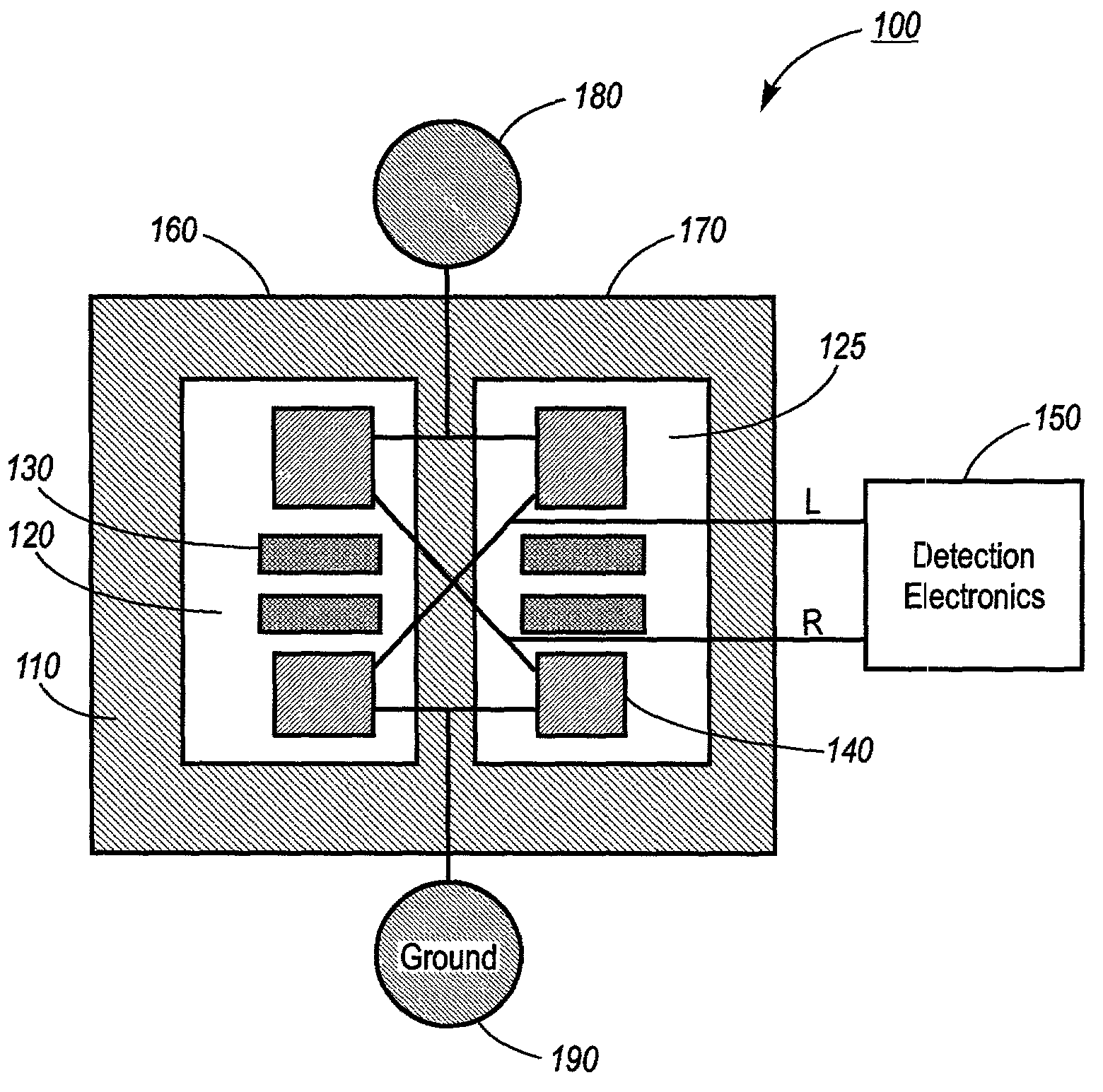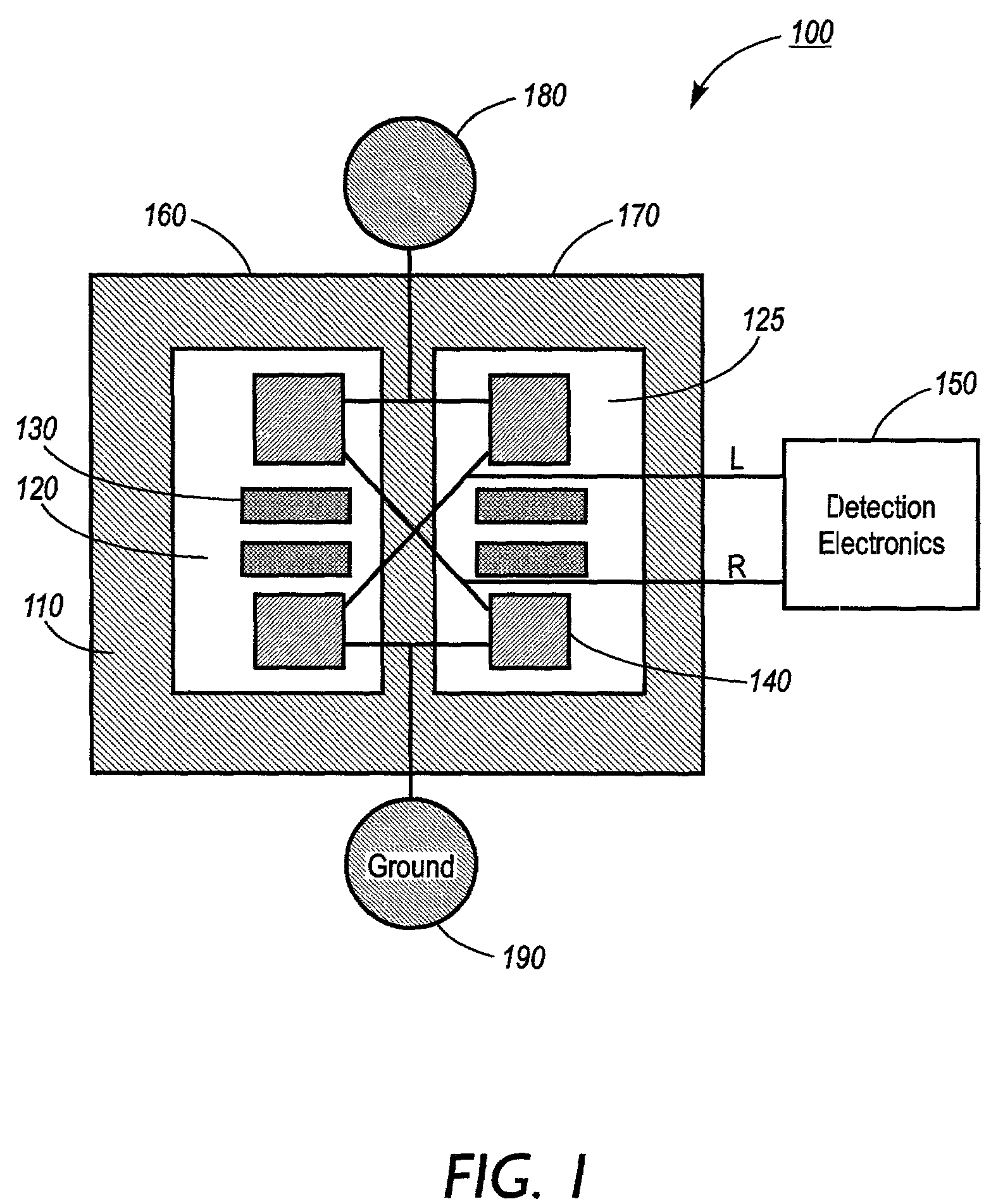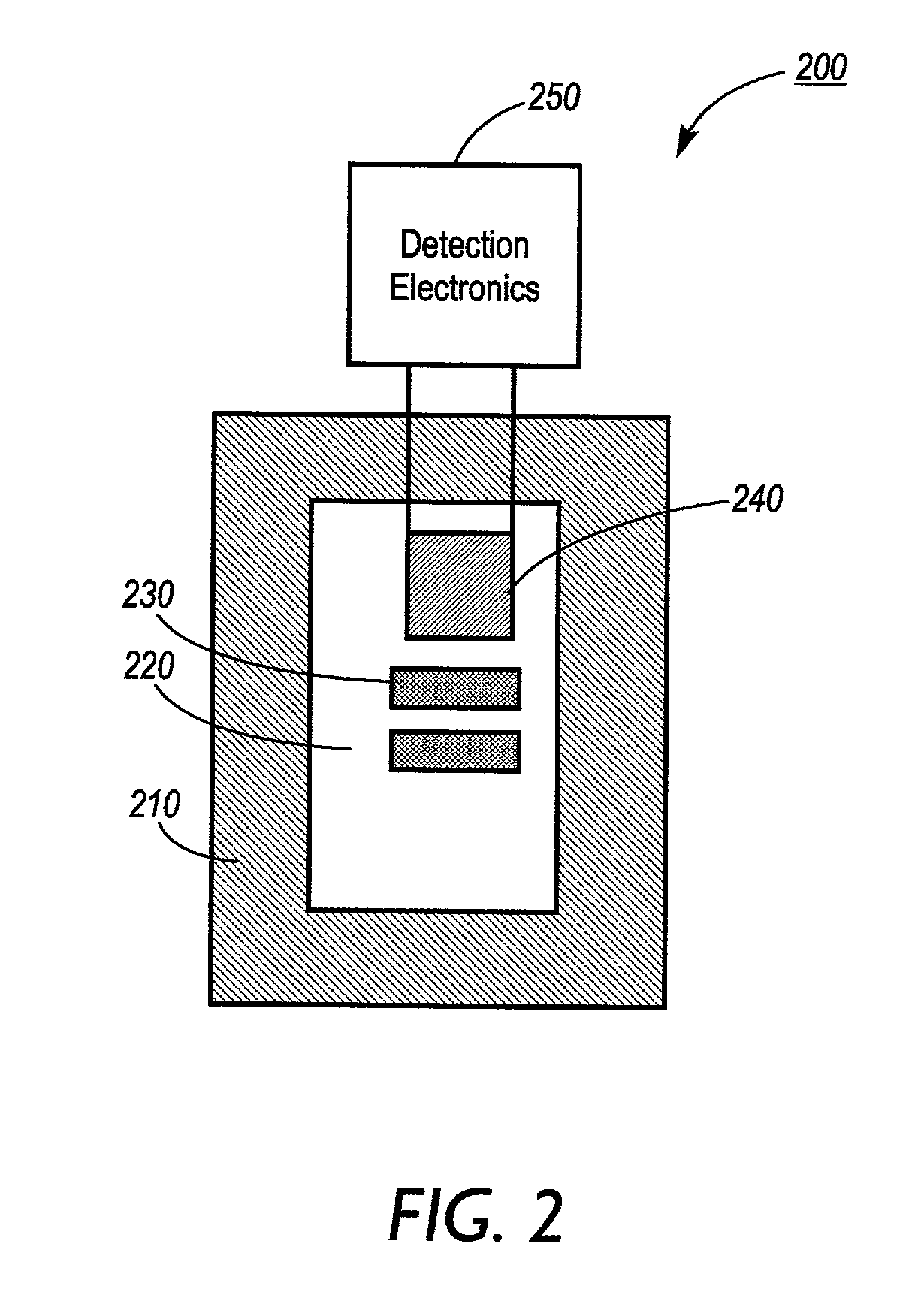Apparatus and method for a nanocalorimeter for detecting chemical reactions
a nanocalorimeter and chemical reaction technology, applied in the field of system and method of an improved nanocalorimeter, can solve the problems of inability inability to use standard calorimeters effectively to monitor a large number of reactions, and inability to measure very small samples
- Summary
- Abstract
- Description
- Claims
- Application Information
AI Technical Summary
Benefits of technology
Problems solved by technology
Method used
Image
Examples
Embodiment Construction
[0031]As used herein, the term “ligand” refers to an agent that binds a target molecule. In the case in which the target molecule is a target protein, the agent may bind the target protein when the target protein is in its native conformation, or when it is partially or totally unfolded or denatured. According to the present invention, a ligand is not limited to an agent that binds a recognized functional region of the target protein e.g. the active site of an enzyme, the antigen-combining site of an antibody, the hormone-binding site of a receptor, a cofactor-binding site, and the like. In practicing the present invention, a ligand can also be an agent that binds any surface or internal sequences or conformational domains of the target protein. Therefore, the ligands of the present invention encompass agents that in and of themselves may have no apparent biological function, beyond their ability to bind to the target protein in the manner described above.
[0032]As used herein, the t...
PUM
| Property | Measurement | Unit |
|---|---|---|
| volumes | aaaaa | aaaaa |
| thickness | aaaaa | aaaaa |
| thickness | aaaaa | aaaaa |
Abstract
Description
Claims
Application Information
 Login to View More
Login to View More - R&D
- Intellectual Property
- Life Sciences
- Materials
- Tech Scout
- Unparalleled Data Quality
- Higher Quality Content
- 60% Fewer Hallucinations
Browse by: Latest US Patents, China's latest patents, Technical Efficacy Thesaurus, Application Domain, Technology Topic, Popular Technical Reports.
© 2025 PatSnap. All rights reserved.Legal|Privacy policy|Modern Slavery Act Transparency Statement|Sitemap|About US| Contact US: help@patsnap.com



